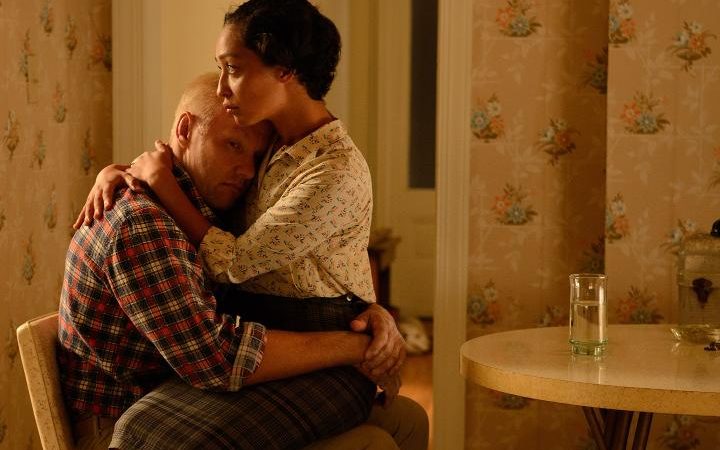Monday
Over the weekend I saw Loving, the recent film about the interracial couple that, in 1964, sued the state of Virginia in order to remain married and out of jail. The quiet but deeply moving film sent me in search of poems about miscegenation. As I expected, I found one by former poet laureate Natasha Tretheway, herself the product of an interracial marriage.
The issue has special significance to me as both of my sons are in interracial marriages. I don’t know how the deep south would have regarded Darien’s marriage to Korean-American Betsy, but I know for sure that they would have fought Toby’s marriage to Candice, who is from Trinidad.
Richard and Mildred Loving journey to Washington to get married and then return home to rural Virginia. Not long afterwards, they are arrested and warned that they will be thrown in jail unless they leave the state for 25 years. At one point in the film, Mildred asks about the arguments Virginia will use against them in the upcoming case and is told that the state regards her children as bastards.
I thought about my grandchildren and felt grateful to all the Civil Rights activists who put their lives on the line so that Alban, Esmé, Etta, and Eden could live in a very different America. I was also reminded how we must push back against the current rise of white nationalism.
In her poem, Trethewey gives an account of her parents left Mississippi and then, like the Lovings, returned to the south for their child’s birth. Tretheway uses the poem to find a pattern in her fragmented life. Her chain of association leads from the journey to Canada to the underground railroad to Faulkner’s Joe Christmas—the martyred mixed race character in Faulkner’s Light in August who is a Christ figure—to the meaning of her own name.
The poem ends on a note of hope: the poet’s parents may have journeyed through the snow to get to Canada, but now the hills are green. Thanks in part to the Lovings, a poet who was born a bastard in the eyes of Mississippi will go on to become its poet laureate. Born near Easter, Mississippi, Trethewey looks back at what appears to be an Easter miracle: Peace wins out over War and Love triumphs over Death. Trethewey, her first name meaning “Christmas child,” doesn’t invoke the Loving case but she could have.
It’s a good reminder for dark times.
Miscegenation
By Natasa Trethewey
In 1965 my parents broke two laws of Mississippi;
they went to Ohio to marry, returned to Mississippi.
They crossed the river into Cincinnati, a city whose name
begins with a sound like sin, the sound of wrong—mis in Mississippi.
A year later they moved to Canada, followed a route the same
as slaves, the train slicing the white glaze of winter, leaving Mississippi.
Faulkner’s Joe Christmas was born in winter, like Jesus, given his name
for the day he was left at the orphanage, his race unknown in Mississippi.
My father was reading War and Peace when he gave me my name.
I was born near Easter, 1966, in Mississippi.
When I turned 33 my father said, It’s your Jesus year—you’re the same
age he was when he died. It was spring, the hills green in Mississippi.
I know more than Joe Christmas did. Natasha is a Russian name—
though I’m not; it means Christmas child, even in Mississippi.
